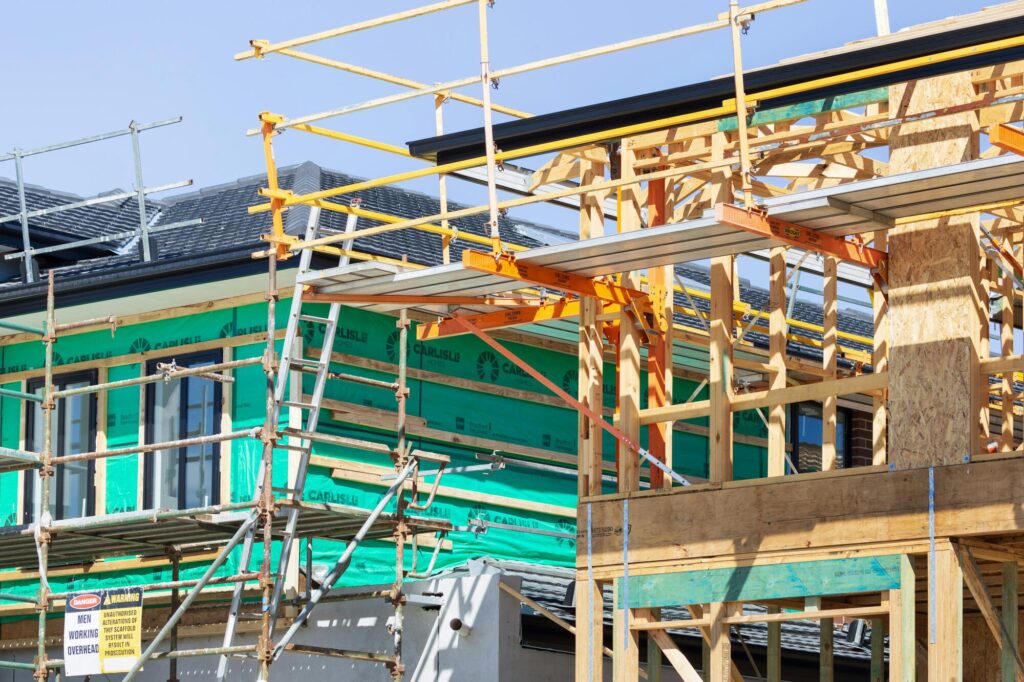When opening or expanding a business, one of the most important construction choices is the roof.
A roof does more than keep the rain out-it protects your assets, affects energy bills, and even impacts your company’s image. The roofing system you choose will influence your business for decades, so it’s important to make the right decision from the start.
This article explains the key factors that affect roofing decisions for new business premises. By understanding these, you can balance function, budget, and long-term value to ensure your investment works for your company now and in the future.
Location and Climate Considerations
Your roof must work with the weather in your area.
If your region has heavy rain, storms, or hurricanes, you’ll need materials that resist strong winds and water damage. In hot climates, reflective surfaces are best for reducing heat absorption, which lowers cooling costs. In colder areas, roofs must be strong enough to carry snow and resist ice buildup.
Local building codes also matter. Many areas require roofs to meet standards for wind, fire resistance, and insulation. By choosing a system that fits your climate and follows local rules, you reduce risks and avoid penalties.
Budget and Long-Term Costs
Money always plays a role in roofing decisions, but focusing only on upfront costs can be a mistake.
Cheaper options like asphalt shingles may save you money at first, but might not last as long. More durable systems, like metal or TPO membranes, cost more upfront but can save on repairs and replacements later. Considering the life-cycle cost, purchase, maintenance, and replacement, helps you see the real value.
Insurance is another factor. Some roofing materials reduce the risk of damage from hail, fire, or storms, which may lower your insurance premiums. Spending more at the start could save much more over time.
Energy Efficiency and Insulation
A roof affects how much energy your building uses.
Cool roofs with reflective coatings keep heat from entering the building, which reduces the need for air conditioning. Good insulation helps maintain comfortable temperatures and lowers energy bills. For businesses interested in green building certifications, energy-efficient roofing supports sustainability goals.
You can also consider solar panels or green roofs. While these may cost more initially, they reduce energy use, qualify for tax credits, and enhance your business reputation.
Durability and Life Span
The life span of a roof varies by material, and that makes durability a key factor.
Metal roofs can last 40 to 70 years, while single-ply membranes such as EPDM or TPO usually last 20 to 30 years. Asphalt shingles are common but usually last only 15 to 25 years. The right choice depends on whether you plan to stay in the building long-term or expect to lease or sell it.
If you want a long-term solution, investing in a roof with higher durability is often the better choice.
Aesthetic Appeal and Branding
A roof isn’t only functional-it can also support your business image.
For companies that rely on curb appeal, like retail shops, hotels, or restaurants, the look of the roof makes a difference. The color, shape, and design can reflect your brand identity. Even industrial buildings benefit from roofs that look clean, professional, and well-maintained.
Choosing the right style not only protects your building but also builds confidence in your brand.
Safety and Structural Support
Safety should never be overlooked when choosing roofing materials.
Some materials, like slate or tile, are very heavy. Before using them, you need to check whether your building structure can handle the load. Reinforcement may be required.
Fire resistance is another important factor. Metal and modified bitumen roofs provide stronger protection than wood or basic shingles. Prioritizing safety ensures your employees, customers, and assets remain secure.
Maintenance and Repair Requirements
All roofs need care, but some require more maintenance than others.
Flat roofs are affordable but often need regular inspections to check for water pooling or membrane damage. Sloped roofs are better at draining water, but can be harder to reach for repairs. Selecting materials that are easy to patch and maintain will reduce long-term costs.
Working with a reliable commercial roofing contractor ensures that maintenance is handled properly and small problems don’t become costly issues. For larger roofing projects, requesting a Labour & Material Payment Bond from your contractor can provide added security, ensuring that all subcontractors and suppliers are paid and protecting your business from potential liens.
Environmental and Sustainability Goals
Many businesses today make sustainability a priority, and roofing choices can reflect that. Eco-friendly options include:
- recycled materials
- reflective surfaces that cut energy use
- green roofs that support vegetation
Some of these may qualify your business for tax incentives or LEED certifications. Beyond financial benefits, sustainable roofing shows your business cares about the environment-something that can build goodwill with customers and partners.
Roofing Warranties and Guarantees
Because roofing is such a large investment, warranties are essential.
Most manufacturers offer warranties on materials, and some also cover labor when certified contractors install the materials. The length and coverage vary widely, so it’s important to understand the details before signing.
A strong warranty provides peace of mind and protects your business from unexpected costs.
Contractor Experience and Installation Quality
The best roofing materials won’t perform well if installed poorly. Hiring a skilled contractor is just as important as choosing the right system. Look for:
- experience in commercial projects
- valid licenses
- references from past clients
A reliable contractor ensures your roof is installed correctly, on time, and within budget. Clear communication about schedules, safety, and costs also matters. A professional contractor makes the whole process smoother and less stressful.
Future Growth and Business Needs
When planning your roof, think about how your business may change. If you expect to expand, add new equipment, or install solar panels, your roof should allow for these changes. Choosing a flexible system avoids expensive renovations later.
A forward-looking decision ensures your roof supports your business as it grows instead of becoming a limitation.
Making the Right Roofing Decisions
The roof of your business premises is more than just a structure-it’s an investment in safety, efficiency, and brand image.
Working with experienced contractors and choosing materials wisely ensures you get the best performance and value. Take the time to evaluate all your roofing decisions, ask the right questions, and protect your business from the top down.
Liked this article? Check out more in this section for the latest updates!






